With the Boko Haram cauldron still smoldering in a corner, it does appear Nigeria is already choking on a much quicker poison: the cocktail of beef and bullet. Or, how else can one describe the apparition of a trigger-happy herdsman now at the national door.
The weapon his forebears carried never used to be more than a stick, to whip the herd into line. And maybe a dagger tucked in a scabbard, to scare potential marauder in the jungle. But the new cattle-rearer has added gleaming AK-47 to his cache.
The fact that he is migrant makes his own franchise of terror more diffuse, more intimate in savagery. As he wanders day and night from his native dry land up north to greener pasture down south, he has scant regard for the territorial integrity of farm camps he finds on his way.
From the north-central down to communities across the entire south, the siege is complete. The rampaging AK-47-wielding herdsman leaves a trail of plunder, rape, kidnap and bloodbath. The kind you find in a Grade-A horror movie. Consider a slew of reports in just the past few days. On Wednesday, the Taraba State Government confirmed no fewer than 40 persons were slaughtered allegedly by Fulani herdsmen (20 in Angai village, nine in Maisuma, eight in Dorei and seven in Fali). This time, the fight was not even over farmland. Trouble reportedly started after armed herdsmen were prevented from raping a lady somewhere which angered them and they responded with violence.
Advertisement
Tuesday came a rather grotesque report from Delta State. A local vigilante comprising a member representing Ethiope East constituency in the state assembly (Evan Ivwurie), security agents and some volunteers simply resorted to self-help by turning the heat on the herdsmen who had formed the habit of attacking farmers in the locality. Dubbed “Operation Arrest, Meet and Engage Their Sponsor”, the mission reportedly led to the sacking of herdsmen’s camp and their flight deep into the Oria-Abraka forest, in so much panic and haste that they forgot their precious herd behind.
Ivwurie shared his experience: “I had embarked on a preventive approach to this matter which is identifying the source and taking the battle to the enemy in their domain.” (However, the lawmaker was silent on what becomes of the cows: booties or prisoners of war?)
On Monday, in Oyo State, Fulani herdsmen under the auspices of Miyetti Allah Cattle Breeders Association of Nigeria spent the better part of the day defending themselves against allegations of vandalizing crops of farmers in Ogbomoso and some parts of Oke Ogun. Rather, they claimed two of their members (Abdu Chika and Buba Kajere) were gruesomely murdered by the farmers.
Advertisement
A day earlier in Akure, a security guard at a farm settlement owned by a Yoruba leader, Olu Falae, was brutally murdered by suspected herdsmen as usual. This came when some other herdsmen are still standing trial for allegedly kidnapping and torturing the same Falae for several days in September last year.
Abia and Imo entered the radar last weekend following a statement by the Department of State Security that five Fulani herdsmen were killed in a forest along the border of the two states. They were allegedly buried in a shallow grave. Condemning the action at a joint press conference Monday, governors of the two states blamed it on “miscreants”.
Few weeks earlier in Enugu, ethnic tension had mounted following the arrest and detention of 76 Agwu villagers who decided to carry arms against Fulani herdsmen who allegedly destroyed not only their farmland but also abducted two of their women. No sooner had the irate villagers formed a barricade than a team of soldiers (said to be of northern extraction) stormed the community and whisked some 76 men in army trucks to neighbouring Abia State.
Embarrassed by the reports, the Army high command later described the perpetrators as “fake soldiers”. The puzzle then: how did they acquire military uniforms, officially issued FN 7.62mm military rifles and green-colour military trucks deployed in the “invasion”? So bold, the “fake soldiers” also had the temerity to head straight to the police command to hand over their 76 captives for proper custody!
Advertisement
It eventually took a court pronouncement in Abia before the Agwu 76 were set free after wallowing in detention for days.
However, the Abia/Imo killings are a child’s play compared to the genocide perpetrated in the last two months by suspected Fulani herdsmen in Benue communities like Agatu, Buruku, Guma, Gwer-west, Logo, Kwande, Gwer- East and Katsina- Ala. At the last count, more than 1,500 had been butchered so far this year. On a single day in February alone, about 300 were murdered in Okokolo, Akwu, Ugboka and Aila villages (all in Agatu LGA). Entire villages were razed. On March 19, another 500 were butchered in 10 communities of the same LGA.
Clearly, the nation is now under a siege of sorts. This writer has a personal experience to share. Two or three year ago in Benin, we woke up at my private home to find that the flower garden outside which had taken a fortune to plant and pains and years to cultivate had been completely destroyed by some cows that stomped past overnight. But should everyone resort to the Ethiope formula, there certainly would be no nation again.
Moving forward, I believe a more sustainable panacea to this festering crisis is to first recognize and appreciate the cultural issues involved. Beside immediate economic benefits, farming communities have emotional attachment to their land considered ancestral legacy. Just the same way the Fulani herdsman views his herd as his only store of value and the national landscape as his legitimate pasture. Lasting resolution lies in both parties understanding each other and the boundaries clearly demarcated.
Advertisement
Therefore, what is required at this hour is a leadership that is not only creative but also courageous. President Buhari’s dilemma is understandable. Before the last election, the charter of demand by the Fulani included a request for the grazing reserves to hold and nourish their cattle and other animals. But the challenge of statesmanship is to pursue a course of action that also accommodates the interests of others.
To start with, the specter of the herdsman brandishing at all an unlicensed rifle – much less a weapon of mass destruction like AK-47 – constitutes clear and grave assault on public decency. Rushing to deploy such lethal weaponry without inhibition in otherwise civil dispute over right of way on farmland is, to say the least, taking the culture of impunity to a treasonable bend.
Advertisement
Now is the time for President Buhari, himself a cattle farmer, to go beyond the normal call of duty to stave the dangerously growing perception that seeming official lethargy – if not indifference – to the continued killings is dictated by the spirit of kinship he shares with the rampaging herdsman or that the nomad’s renewed audacity, this genocidal reflex, feeds on the opium of expected solidarity from the top.
Stories have told that the rampaging Fulani herdsmen are not Nigerian. Given their ferocity and that similar incidents were reported even in core northern states, they are suspected to be migrants from Niger, Mali and so on. That being the case, why is the Nigerian nation still shy of responding more strongly? Such attacks ought to be viewed properly then as direct assault on our sovereignty as a nation.
Advertisement
A sure way to start is urgently enunciating a disarmament programme. The wandering herdsman first needs to be engaged to turn in his AK-47 as the minimum pre-condition. Relevant security agencies should be directed to enforce this. The mass killings cannot continue.
It is commendable that President Buhari, by some policy steps already taken, has the clarity of mind to, at least, appreciate the real existential point at issue: the most sustainable source of pasture for the cattle. This had led Abuja to consult with states with a view to finding lasting solution. Borrowing from modern practices elsewhere, most stakeholders were said to have agreed that the option of ranch is the most feasible and sustainable. But the optimism that a workable solution was finally in sight seems vitiated with a statement credited few days ago to the Agriculture Minister, Audu Ogbeh (himself a successful farmer), that the Federal Government would rather set up grazing reserve.
Advertisement
In fact, Ogbeh disclosed that based on Buhari’s directive, arrangement had been concluded to import improved grass seeds to cultivate the proposed 50,000 hectares of grazing reserves within six months. Bold as the step may appear, the devil is in the details. While Ogbeh’s enthusiasm is welcome, it remains to be seen how he hopes to secure the land to start with. The idea of grazing reserves runs counter to ranch which the states are understandably comfortable with. For the extant Land Use Act vests allocation and control of the land resource in state authorities. Besides that, the concurrence of affected communities and landowners also matters. Ogbeh’s grazing reserve will, therefore, require a constitutional amendment to begin with.
Really, we do not have to reinvent the wheel. Ranching provides more decency not only for the cattle-rearer themselves but also their herd. It enables the application of modern techniques in the animal husbandry. It provides clean water, hospital, schools and other facilities for the convenience of the dwellers. Studies have shown that the Nigerian cow suffers stunted growth partly because of the exceedingly harsh condition it is bred. For instance, it is estimated that the average Nigerian cow travels some 25 kilometers per day under scorching sun and is left to quaff polluted water.
If properly harnessed, livestock has potential to raise our national GDP, especially now that there is a renewed clamour to diversify the economy from oil as mono product. According to a 2008 survey, Nigeria’s population of cattle was put at 14.7m, out of which 10 percent were classified as milking cows.
Today, no thanks to the herdsman’s primitive rearing technique, less than one percent of the cattle population is managed commercially. It explains why the country still spends an average of N50b importing milk and other dairy products annually simply because the full potentials of cattle farming are left untapped. But a relatively smaller country like Uruguay today owes the bulk of its national wealth to livestock. In 2014, it exported $1.4b worth of beef, $800m of dairy products and $400m of leather goods. At 3.3 million population, its per capital income is a whopping $22,000.
Changing the Nigerian narratives for the better means rethinking the way we work and live.
Oritsejafor and political idol-worshipping
So, after five dark years of political idol-worshipping, cheer-leading Goodluck Jonathan’s political Sodom and Gomorrah rapturously, Pastor Ayo Oritsejafor now whines about the loss of values and feigns ignorance of all the iniquities of yesterday.
In an interview published by Sunday PUNCH, the outgoing president of Christian Association of Nigeria (CAN) was at his sanctimonious best. He now reels in shock each time a negative thing is reported about Jonathan who he describes as “my son and he’s still my son.” Of course, such “negative reports” definitely include Dasukigate.
To him, Jonathan “did his best to fix Nigeria but sabotage swung into action to ensure he did not succeed.”
Seriously?!
Though he did not go further to reveal the identity of the so-called “saboteurs”, it is safe to assume they would include the clan of pastors and other spiritual consultants who either made Aso Rock their second home while Jonathan reigned or kept silence while he was going astray. His latter-day posturing notwithstanding, Oritsejafor himself was their dean.
True men of God are supposed to be defined not by how sparkling their white robes are or how long their gold neck-lace is; but what position they take in the face of temptation or if their voices carry any weight at all in the hour of moral crisis. However, many chose to keep silence because of the “stomach infrastructure” they were lavishly plied with as the nation floundered under Jonathan.
Before the Titanic began to sink, those who should know had raised the alarm. Then CBN governor, Sanusi Lamido Sanusi, alerted that billions of dollars of oil money was missing. But such criticisms were simply viewed by the likes of Oritsejafor and other hallelujah choir either through ethnic or sectarian lens. They tried to justify every thing in the context of defending “a Christian presidency”. (As if hunger knows religion.)
By their open partisanship – and sometimes loose talk – they clearly helped sharpen dangerously Nigeria’s religious fault-lines.
For instance, a few weeks to the 2015 elections, the airwaves was awash with allegation of N6b cash given to some church leaders. (By the Dasukigate diary, billions were also splashed on Islamic prayer-warriors for same spiritual services.) Not surprising, some soon began to prophesy in earnest that Jonathan’s second term was already “sanctioned by all the angels in heaven”. The conscientious ones in Christendom felt scandalized by the report of bribe and reacted angrily by raining curses on those behind the attempt to induce the church. Meanwhile, the response from Oritsejafor’s CAN was, at best, a studied silence.
Thank God that while the likes of Oritsejafor were busy carousing with Jonathan inside the Villa, we still had some principled clergymen like Cardinal Anthony Okogie, Bishop Mike Okonkwo, Pastors Chris Okotie and Tunde Bakare who fearlessly and relentlessly spoke truth to power.
Oritsejafor’s dubious pontification did not end with Jonathan. With greater fervor, he also wailed in the same interview against the infiltration of the church by “mercenaries, commercially minded people”. The church should seek to inculcate the right values and purge itself of such elements, according to him. His words: “(Congregants) fall prey to some of these pastors or prophets of doom. The way they live gives a wrong impression of what should be in a church of God. There should be no room for material possessions.”
Good talk! But if the logic in Oritsejafor’s homily is stretched further, one then wonders if ownership of a private jet is excluded from list of worldly things so condemned. It is on record that the powerful pastor joined the exclusive club of private jet owners while Jonathan reigned, perhaps to illustrate how really abundant life really was under his “son”. The source? We were only told it was “a blessing” from the pastor’s “children” (presumably including Jonathan). Well, it did not matter that as the CAN president began jetting around luxuriously, more and more congregants, the faithful tithe-payers, plunged deeper and deeper into penury.
And the scandal of all scandals, later in 2014, Oritsejafor’s jet would be caught in the web of money-laundering in the botched attempt to procure arms from the black market in South Africa. When confronted with the hard facts, Oritsejafor attempted to escape culpability by the most jejune route. He said he had handed the aircraft to a private company to run it on charter basis when he was not flying. That he was not in a position to know the sort of cargoes – human or material – they were ferrying. But pray, when did it come appropriate for pastor to double as air transporter to begin with? So, who is “commercially-minded” now?
Taken together, it would now seem wisdom has finally dawned on Oritsejafor. Unfortunately, it is coming but when no longer useful. Therefore, the least expected of him is spare us the obscenity of his crocodile tears. Nigerians already know the false prophets who misled Jonathan to political Golgotha.
Views expressed by contributors are strictly personal and not of TheCable.
1 comments

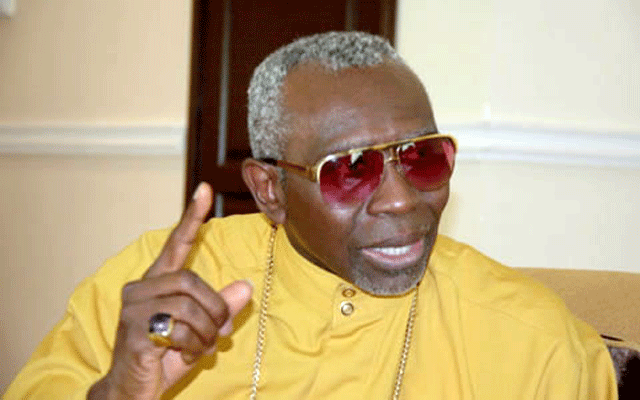
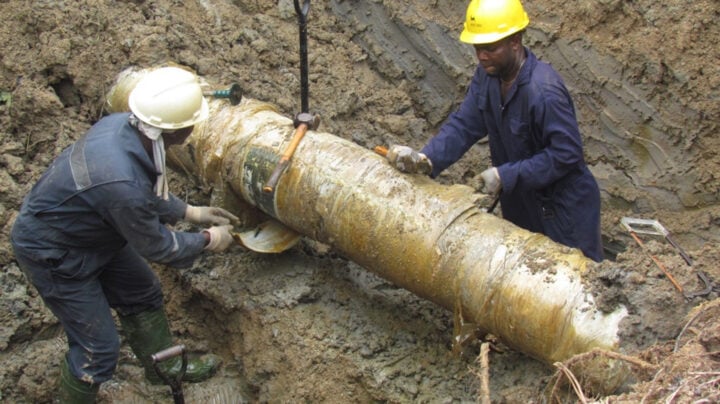
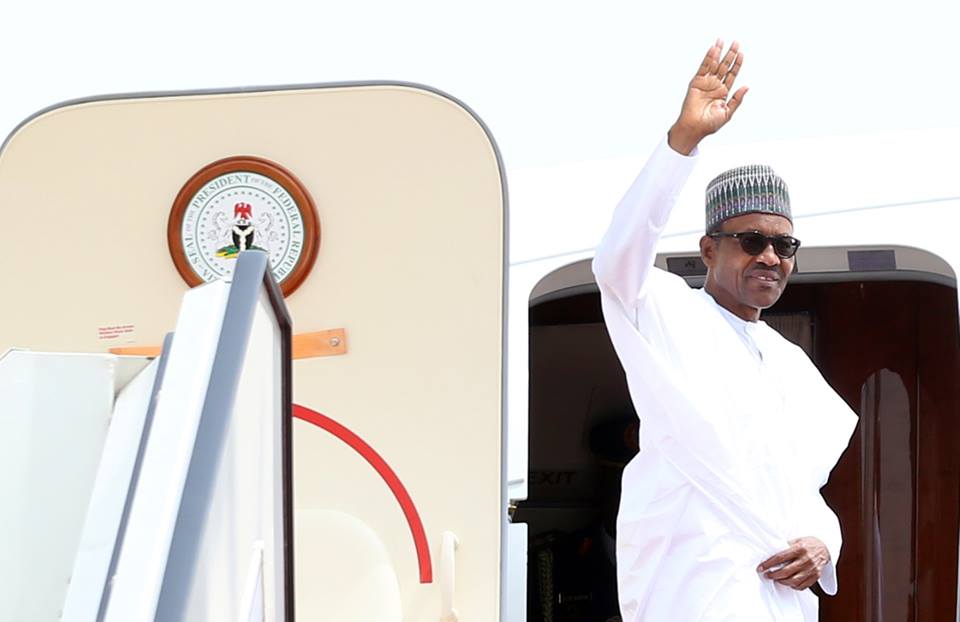
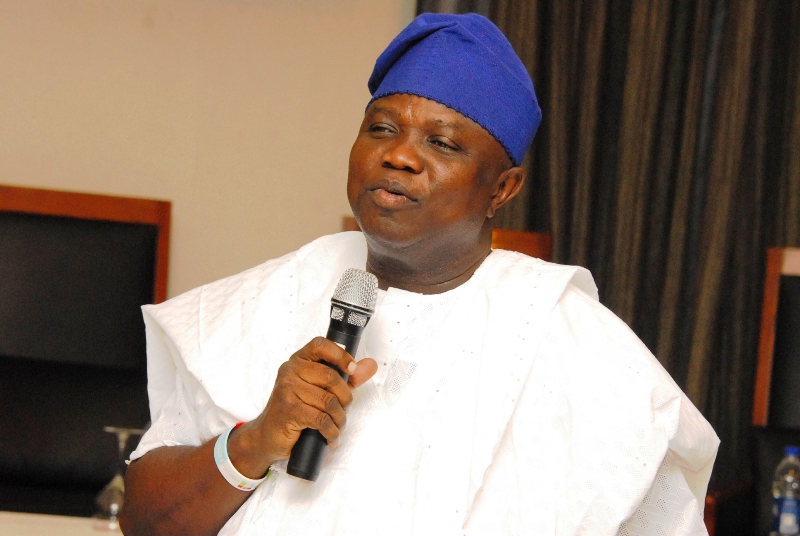
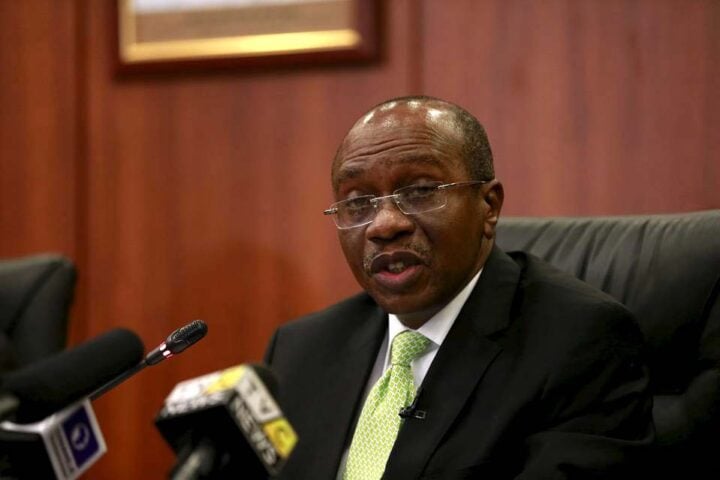
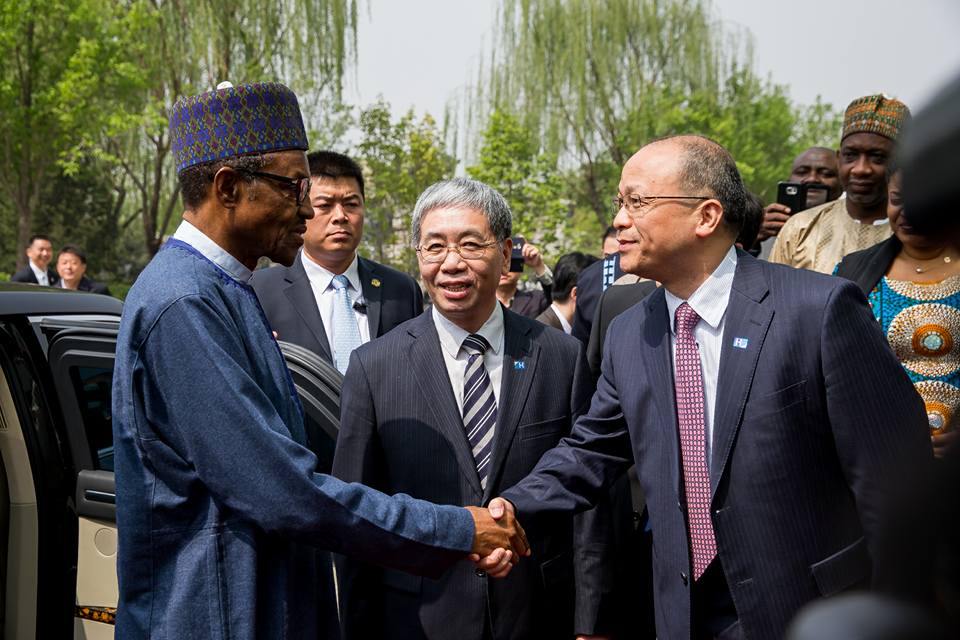

The writer of this piece is highly erudite.Why did Ayo ‘bought,acquire’ material he didnt need if not for commercialization?By their fruits we shall know them.On the normadic Fulanis,I have been posting my views for the past two years or so.As it is now,just as in ur assertion,Buhari is biased.How do we diversify to agric under this circumstances.How can you take a loan for for your farming and sadly Fulanis scavange if no life is involved.Once again,I salute the writer